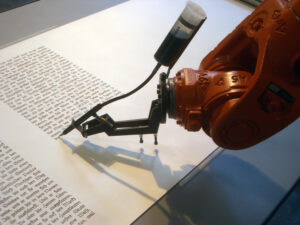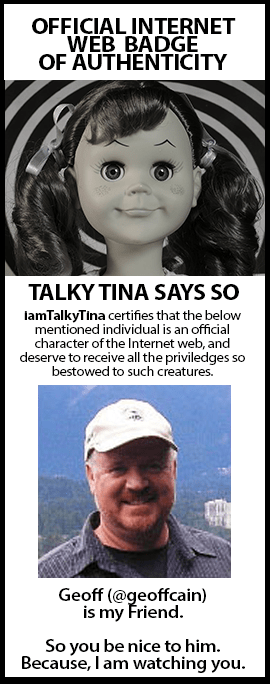The Atlantic’s December issue has an essay “The College Essay Is Dead: Nobody is prepared for how AI will transform academia” by Stephen Marche that says that AI is going to make the college essay irrelevant. I say good riddance. I write this as a former English and Adult Basic Education Community College teacher. The formal essay has its uses but for why most of our students are going to school, it is an anachronistic barrier. Most are at college to get a credential for work, not to become academics. At the last college I taught at, I routinely replaced papers with group projects. I would tell the students (especially those who didn’t like group work) that your future employers are going to be more interested in how you work in a team and less interested in your ability to write a 10 page research paper. We use writing in my classes as another tool for thinking and expression, not as an end in itself. My classes were portfolio assessed. Students would have a concept map or outline, a discovery draft created in small groups, a draft for the tutor or tutoring center, and a final copy. We also used things like Pecha Kucha to present papers to the rest of the class. Coming from a Constructivist teaching background, many of my formative writing prompts begin “based on past knowledge and your personal experience, what approach would you take to solving the problem of…” You can’t download someone else’s experiences. Teaching should also be a process of relationship building, so you know your students and have some idea about their experiences.
By emphasizing writing as a product instead of a process, we only encourage the students to go to places like Course Hero or use AI tools to write. The goal of education is to meet the outcome of 5000 words right? Who cares how you get there? The fact that someone can give a chatbot a writing prompt and get an acceptable essay (in some cases) just means that teaching is really broken right now. We have commodified teaching and learning to such an extent that anything that can produce something can “get” a grade.
There may be some legitimate uses for these bots: translation, rewriting code; Bryan Alexander and Stephen Downes were talking on Mastodon about having it create lab reports. I think I have read some furniture assembly instructions that were not human generated.
There is the claim that AI can produce art. If your definition of art is the production of a picture, then I question your definition of art. If producing a picture is art then my Xerox machine is every bit as good as Leonardo Da Vinci.
Solutions?
If a student is turning to places like Course Hero or bots for homework, it means that they feel like they do not have ownership of their own education.
- Get rid of grading. If you are not familiar with ungrading, check out “So, you want to take the grades out of teaching? A beginner’s guide to ungrading” by Susan Blum, and then take a deeper dive into the work of Jesse Stommel.
- Emphasize process, not products. I use concept mapping and/or outlines with students depending on the students inclination. This should not just be about ferrying a student through drafts. It is an opportunity for the student to make connections with their peers, tutors, and their own knowledge and experience. The important thing is to help the student find their own process.
- Mix papers with presentations, podcasts, or video. Once the student has a process for writing, for organizing and presenting their thoughts and research, let them explore other media: blogs, wikis, audio, video, presentations that are pure images.
- Have the students create assignments in a collaborative process. Teach them to think and work together. Explore open pedagogical practices and courses like DS106 for alternative approaches to the traditional idea of curriculum.
The bot at Open.AI.com said it succinctly enough for a “C-“:
The use of Artificial Intelligence (AI) in the essay writing process has become increasingly popular in recent years. AI has been used to help students compose essays, from grammar and spell checking to providing more personalized feedback. AI has a number of advantages over traditional essay writing methods, including faster turnaround times and a more efficient process. But despite its advantages, AI will not end the essay writing process.
First, AI can only do so much. AI works best when it is given a specific set of instructions and data to work with. It is not capable of the same level of creativity and critical thinking that a human can bring to the essay writing process. AI can help to identify errors and provide suggestions for improvement, but it cannot provide the same level of insight and feedback as a person can. AI cannot replace the process of brainstorming, outlining and drafting that are essential for creating a successful essay.
Second, AI is not yet sophisticated enough to understand the nuances of language and writing style. AI is often used to check for grammar and spelling errors, but it is not able to understand the context of a sentence or the implications of certain words and phrases. A human can use their knowledge and experience to create a more effective essay, while AI is limited by its programming.
Knowledge is Power
It is important that we understand as much as we can about AI. Read and learn about this. Follow the stories. The real ethical issues come when we leave things like AI and learning analytics to “experts”: we risk losing the ability to make decisions about how and when AI should be used.





